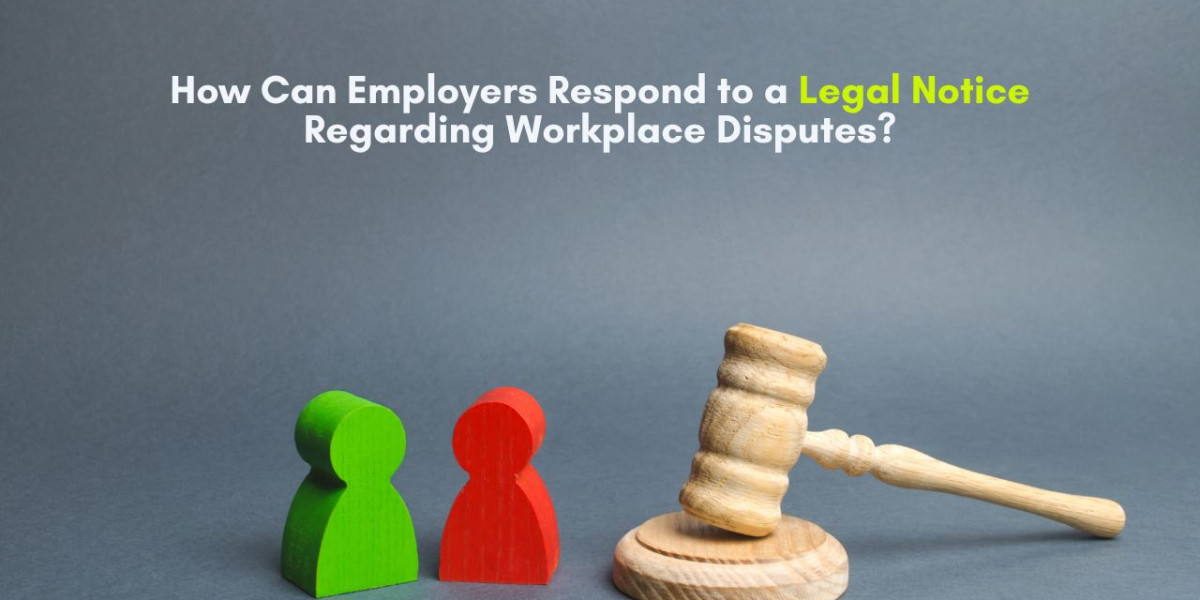Introduction
Workplace disputes are critical for employers, often leading to legal notices. Whether related to salary issues, harassment, or contractual breaches, a well-informed response strategy is crucial. This article explores how employers can address these legal notices effectively while ensuring compliance with the law and maintaining professional integrity.
Understanding the Nature of Legal Notices
A legal notice serves as a formal communication from an employee or their representative outlining grievances and seeking a resolution. In many cases, these notices stem from disputes such as non payment of salary by employer, alleged cases of sexual harassment at workplace, or other forms of misconduct.
Employers must approach legal notices as serious matters. Ignoring them can lead to escalating legal consequences, damaging the organization’s reputation and financial stability.
Steps to Respond to a Legal Notice
1. Analyze the Legal Notice Thoroughly
The first step is to review the legal notice carefully. Understand the allegations mentioned, whether they relate to employee harassment complaints, breach of employment agreements, or issues like legal notice for non payment of salary. Take note of the timelines, supporting evidence, and demands made by the aggrieved employee.
Employers should avoid reacting impulsively or emotionally to a legal notice. Instead, they must focus on gathering facts and preparing an appropriate response based on the situation.
2. Seek Legal Advisory Services
Engaging professional legal advisory services is a prudent approach. Experienced lawyers can assess the validity of the claims, suggest the best course of action, and draft a response that aligns with legal norms.
Legal professionals specializing in corporate legal advisory services can also guide organizations in navigating complex labor laws, ensuring that the response safeguards the company’s interests while addressing the employee’s concerns.
Addressing Salary Disputes
Disputes related to non payment of salary by employer are among the most common triggers for legal notices. In such cases, employers should:
- Verify the claims: Check payroll records, employment agreements, and relevant documentation to validate whether the salary in question has been withheld.
- Communicate transparently: If the delay or non-payment is due to operational issues, inform the employee promptly and propose a resolution timeline.
- Settle legitimate dues: Failing to resolve salary disputes can result in penalties, lawsuits, and reputational harm. Employers must address legitimate grievances swiftly to maintain trust.
Employers may also need to consider the legal notice charges that could arise during the resolution process. Allocating resources for these charges upfront can minimize surprises later.
Handling Cases of Workplace Harassment
Workplace harassment, particularly sexual harassment at workplace, is a sensitive issue that requires immediate and thorough attention. Employers receiving a legal notice related to harassment should:
- Acknowledge the issue: Respond to the complainant’s legal notice, acknowledging the seriousness of the allegations.
- Initiate an internal investigation: Form an unbiased committee to investigate the claims as per the guidelines laid out under laws like the Sexual Harassment of Women at Workplace (Prevention, Prohibition, and Redressal) Act, 2013.
- Take corrective action: If the investigation confirms harassment, take disciplinary actions against the offender, and implement measures to prevent future occurrences.
Failing to act on employee harassment complaints can lead to legal penalties and a loss of employee morale, making it essential for employers to address these issues promptly and with empathy.
Preparing an Effective Legal Notice Response
Drafting a response to a legal notice involves precision and professionalism. Employers should:
- Address all allegations: Respond specifically to each point raised in the legal notice, supported by facts and documentation.
- Maintain a neutral tone: Avoid using language that could escalate the dispute or be interpreted as defamatory.
- Propose solutions: Where possible, suggest amicable resolutions such as mediation or a settlement to avoid prolonged litigation.
Employers should also be mindful of the legal notice charges involved, ensuring their response is cost-effective without compromising on quality.
Preventive Measures to Avoid Legal Notices
To minimize the risk of receiving legal notices, employers can adopt the following preventive measures:
- Foster a compliant work environment: Adhere to labor laws, ensure timely payment of salaries, and establish zero tolerance for workplace harassment.
- Provide access to corporate legal advisory services: Having on-call legal professionals can help resolve disputes before they escalate into legal issues.
- Establish clear policies: Transparent workplace policies, grievance mechanisms, and regular training can reduce misunderstandings and create a harmonious work culture.
The Role of Communication in Workplace Disputes
Effective communication is a cornerstone of dispute resolution. Employers should prioritize maintaining open and respectful communication channels with employees. Addressing grievances proactively can often prevent issues from escalating to the stage of legal notices.
In situations involving complex disputes, such as legal notice for non payment of salary, prompt communication with employees about the status of their dues can go a long way in building trust and avoiding legal repercussions.
Seeking External Resolution Options
In cases where the dispute cannot be resolved internally, consider alternative dispute resolution methods such as mediation or arbitration. These approaches can often provide a quicker and more cost-effective resolution compared to formal litigation.
Employers should also consider consulting legal professionals for advice on minimizing risks associated with escalations. Engaging corporate legal advisory services ensures a strategic approach to workplace disputes, protecting the organization’s interests.
Conclusion
Responding to a legal notice regarding workplace disputes requires diligence, legal expertise, and empathy. Employers can manage disputes effectively while safeguarding their organisation's reputation by addressing the issues raised, ensuring compliance with the law, and adopting preventive measures.
Engaging professional legal advisory services and fostering a compliant, inclusive work environment are essential steps in mitigating risks and maintaining positive employee relations.








